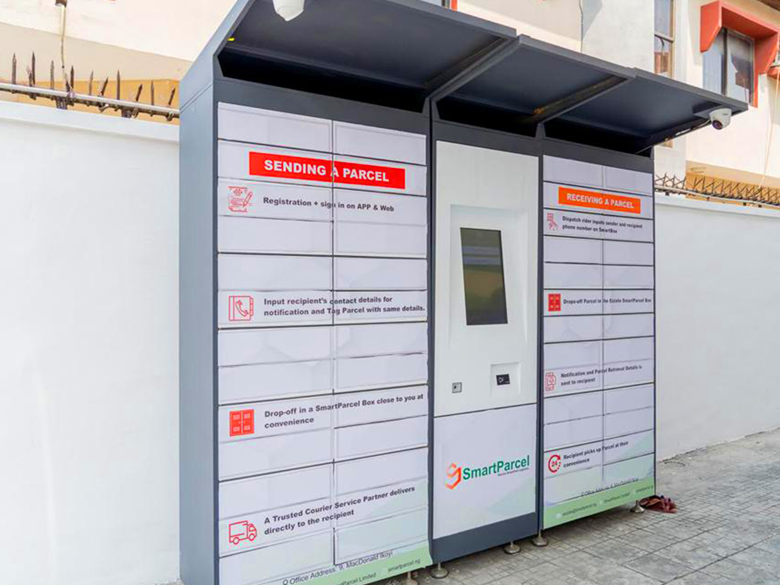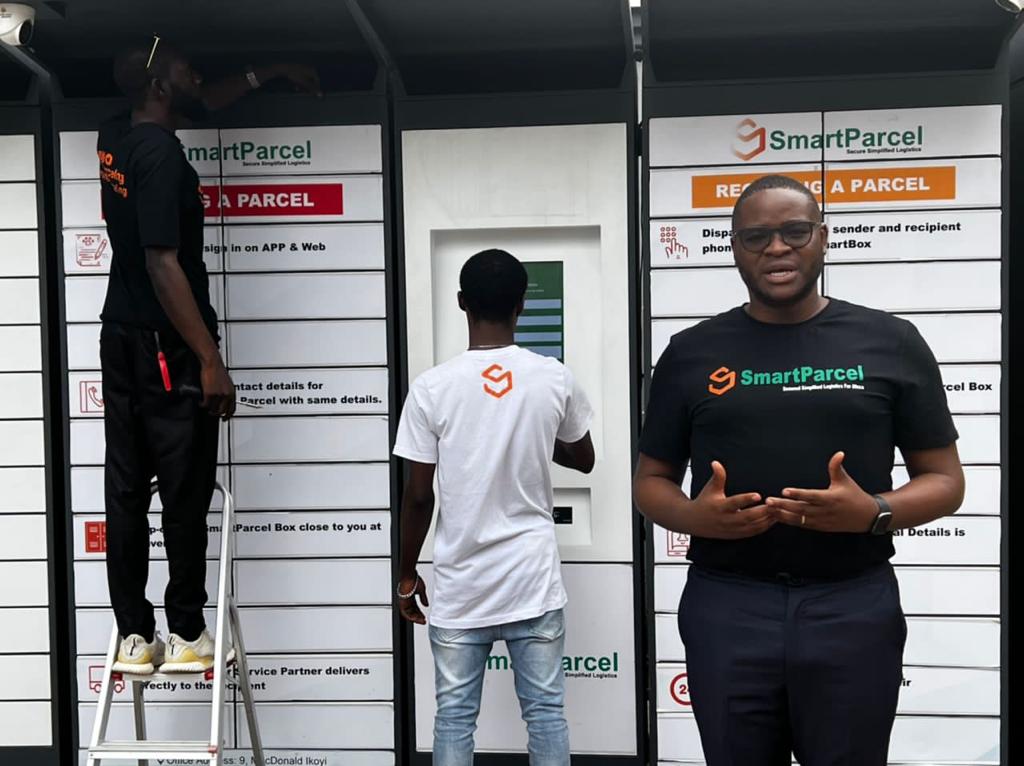Last-mile delivery continues to be an enigma for Nigerian shoppers and businesses. SmartParcel is bringing “smart” postal boxes to the mix.
Nigeria’s last-mile challenge begins with sparse postal service distribution. Poor addressing systems in sprawling urban and rural areas and weak transport infrastructure combine to make the last-mile headache terminate in frustrated customers, struggling businesses and a lot of motorcycles. The Nigerian Postal Service (NIPOST) operates 955 post offices throughout the country and 3000 postal agencies for areas it does not cover. Counting both offices and agencies, there is one postal service for every 48,000 Nigerians. This is in contrast to the UN’s (via its Universal Postal Union) recommendation of one post office for every 6000 people.
Despite Nigeria’s low ratio, the overall quality of service from NIPOST has deteriorated over the years. Multinationals like FedEx and DHL and enterprising Nigerian logistics companies and a network of informal courier services have laboured to fill the gap of NIPOST’s failures. However, exorbitant licensing requirements, outright bans on motorbikes, security threats and criminal allegations against couriers disrupt business. The effect is felt most strongly by the rapidly growing e-commerce sector where everyone, from large startups to WhatsApp vendors, needs to deliver goods to their customers offline.
To solve this last-mile delivery problem, Benjamin Adeyemo and Udochukwu Nwaogbo founded SmartParcel. Their goal was to make it easier for businesses to ship products or fulfil orders to their customers who can then pick up the products at their own convenience.
With SmartParcel, registered users and businesses can deposit parcels and documents in a nearby smart locker operated by a SmartParcel franchisee. Then, SmartParcel’s courier partners transport the goods to a locker closest to the receiver or any locker the consignee requests. Courier partners can also deliver the items directly to consignees’ homes or offices. The lockers will only open when the courier agent or consignees input the correct automatically generated four-digit PIN.
It is, in effect, an Instabox for Nigeria.
In 2017, DHL, the German logistics company introduced a similar service but it restricted the deployment of its smart lockers to its office locations. SmartParcel, in contrast, wants to deploy its boxes at NIPOST office locations, in malls, residential estates and other secure but high foot traffic locations. It has already secured a partnership with NIPOST to deploy smart lockers in post offices in all 774 local government areas in Nigeria.

Adeyemo told TechCabal that his company wants to “have 10,000 Lockers across the country via a franchise model where individuals and corporate entities can own lockers, monitor activities from a dashboard and earn revenue.” It has already deployed its boxes in several locations in Lagos including TDA Mall and some Sterling Bank offices.
Promising to free up delivery agents and cut costs with a smart locker system is an ambitious undertaking.
The reality of outdoor self-serve postal boxes and its current growth plan will mean that SmartParcel will be constrained to deploy lockers in mostly secure urban locations. This mix may see the service deployed in mostly-gentrified areas and could confer an elite aura on the brand. It may also mean that the company will have limited impact in simplifying last-mile logistics in rural areas. Or it may just be part of a strategic vision to limit its expansion to areas that hold business appeal.
Nevertheless, SmartParcel’s partnership with NIPOST suggests that it is proactively building bridges with the public service that doubles as the regulator. The partnership also suggests that though NIPOST is losing revenue and user appeal, it is interested in staying relevant to the Nigerian public through SmartParcel.
The road to efficient last-mile delivery systems is not smooth. Intelligent locker startups like Instabox claim to reduce inefficiencies and cut delivery costs but they operate in regions where infrastructure is several times more sophisticated than what is obtainable in Nigeria. SmartParcel has to prove that it can do the same here in spite of these differences.





















